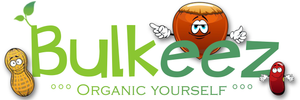Eating Organic is Here to Stay
Let’s face it, there are a lot of crazy and popular fads that have come and gone over the past few years, but very few of them have had any sticking power. From vitamin IV drips to appetite suppressant lollipops, we really have seen it all recently. But there is one fad that is here to stay, and it’s our switch to healthier, organic food.
Organic food has gained tremendous popularity over the past decade, but the information surrounding organic food has been anything but clear or easy to find. Sifting through all the various opinions and stances on organic food can be overwhelming and at times very frustrating. That’s why we wanted to set the record straight.
Organic food is here to stay. Let’s explain why….
What is organic food?
The term “Organic” primarily refers to the ways and processes in which the food is grown. While the specifics of what qualifies as organic vary region to region, typically organic food is grown without the use of artificial chemicals, hormones, pesticides, antibiotics, or genetically modified organisms (GMO’s)
To put an organic label on their products, a company must be totally free of artificial food additives, which include things like sweeteners, preservatives, coloring, flavoring, and more.
Organic farming also drastically cuts down food waste, improves soil quality, helps conserve groundwater reserves, reduces pollution to the environment as well. And overall, eating organic food is widely considered to be much healthier for your body.
But wait, isn’t conventional food as safe as organic?
Unfortunately, no! Only organic provides the regulatory assurance that your food has been grown and processed without the use of chemicals.
Historically, we have been led to believe that if it’s on a shelf and in a grocery store, a product is healthy and regulated to ensure our safety. But we find ingredients like trans fats in microwave popcorn, to seasoning blends with MSG’s, all the way to even the fruit and vegetables grown with pesticides or hormones, these foods have a wide range of negative health conditions associated with them.
The Dropping Cost of Buying Organic
One of the main detractions from buying and eating organic food has been the overwhelming cost. In the early 2010’s it could cost as much as double to effectively shop organic. That’s all changed in 2020.
Today organic food is only marginally more expensive than conventional foods, and with many options to buy organic food in bulk, the price begins to drop even more. When you consider the difference in health, and the investment your making in your own body, it becomes a no brainer. Not to mention the difference buying organic has on the environment, communities, and sustainable farming.
Organic Food Is Here To Stay
With the influx of proof and evidence coming in supporting the benefits of eating organic food, coupled with the declining cots, and global benefits associated with it, organic food is here to stay. In 2019 the organic food market surpassed $55 billion in worth, and we expect it to continue to grow.
It’s safe to say that little to nothing is more important than the choices we make to feed ourselves and our family. We understand the wide range of options you as a consumer are faced with, and hope that this information can help you to make a choice that is best for yourself.
To learn more about organic food, or to submit your question to our team at Bulkeez, visit our site or call today!
Did this make your shopping experience easier? Let us know!


Comments
0 comments